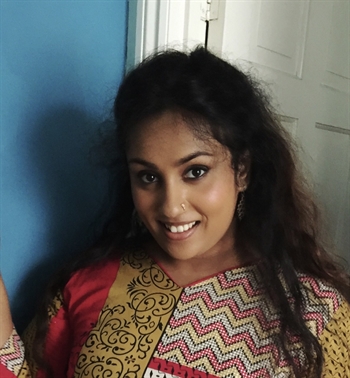 What year did you graduate?
What year did you graduate?
2018
What course did you study?
BSc Clinical Physiology (Cardiology)
What is your current role?
Senior Cardiac Physiologist performing and assisting in both non-invasive and invasive procedures as well as being trained in echocardiography
How did you get into your current role?
After having completed my degree, I went onto a locum position, working alongside studying for my MSc degree. I applied to jobs on the NHS website as I knew I wanted to be trained to get into more of the invasive side of cardiology. I told them my experience (usually when you apply for jobs they look for previous autonomous experience – the locum position helped in this case) and that I was interested in and studying echocardiography at university.
Can you describe a typical day?
Typically I start at 9 am (if Im in cath labs then I’d start at 8.30am and finish at 4.30pm), check the defib and crash trolley, start getting programmers ready for pacing clinic, get all the files from the list ready before clinic starts and then after each patient, enter the details on the power chart system so any staff within the trust is able to see the details. If I’m in cath labs, I’d start at 8.30am, assist with angiogram and device implants, depending on how many cases there are, I’d go back to the department and help out with whatever’s needed.
What do you enjoy about your role?
Lunchtime... I’m kidding. The variety of patients that we see and how much we learn from their cases is amazing. It’s also very rewarding to know, on occasions, that a simple pacemaker tweak can alleviate symptoms and prolong quality of life. It’s also good to know the journey of a patient who attends hospital. For example, a patient comes into hospital with bradycardia and a 24hr tape is requested. CHB is picked up and the doctors decide to pace the patient. You’ll then be able to recommend what device and even what leads could be used. This role gives you somewhat complete autonomy but people will always be there to help whenever you need.
What do you find challenging in your current role?
It can be quite hard to please everybody and still get your job done. To overcome this, make a list of what you need to do, once you’re satisfied the points on your list have been completed then you can assist others in the department or take some downtime to yourself.
What advice would you give to a current student at St George’s who is keen to get into a similar area of work as you?
Being in the world of cardiology is extremely rewarding. You’ll be looking forward to working with a range of nurses, radiographers, doctors, admin staff, other physiologists and you’ll be able to learn so much on the job from these people. It’s very important to know the basics of an ECG. As you apply for jobs, you may be offered either a band 5 or a band 6 job, and in both of these roles you’ll always have a team who will look to you for assistance with reading ECGs. Know the normal and abnormal measurements. Always have a willing approach to further your professional development. If you’re finished in the pacing clinic and there’s nothing else to do, either offer help to others in your department or ask to sit in Echo and observe a couple of scans. Keep a small notebook with you because sometimes work can become overwhelming and you’ll need to prioritise. Use colour to indicate what needs to be done urgently, semi-urgently and routinely and tick off as you go. This is particularly important if you’re doing most of the admin within your role.
Which aspects of your degree are relevant for your current role?
Pretty much all information taught will be essential. However, there are a lot of things you’ll get taught on the job either by a senior physiologist or external trainers. Personally I find the cath lab pressures important to know so you can let the doctors know that the pressure is damped or in the LV. The damping pressures are usually learnt from the lectures and the LV pressures can be learnt on the job. Sometimes you may be questioned by a doctor either for testing or they may not know certain details. If you don’t know, be honest and say so. Otherwise you may end up putting the patient in danger.
What would you say were the best / most challenging things about your degree?
The best things were placement and exams for me. I’m someone who can read a lot of information and assimilate this when and as needed. Placement was very good as you get to see all the theory knowledge you learn in the lectures being put into practice. Reflecting back to my uni days I believe more practical work could have been incorporated into the cardiology lectures, to prepare students before they even went into placement.
If you could go back to your time at St George’s, would you do anything differently?
I would maybe mingle more with students from different courses as my class was quite small.
Do you have any advice or a message for current students at St George’s?
Maintain a study/life balance please but also work extra hard in year 3 on your dissertation
Do you have any advice or a message for students considering studying at St George’s?
It’s a very good university and the teaching takes place inside of a hospital so there may be potential to get extra work experience before going on to placement.